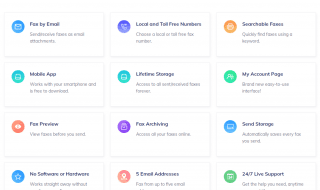
Every business needs loyal customers. They are the ones that keep your business ticking over, recommending you to other potential clients and supporting you through the bad times. Obviously the best way to guarantee returning customers is to offer unforgettable service. But what other methods are there for luring people back?
Loyalty cards and vouchers
One way many businesses guarantee return customers is by offering a rewards system. There are various types of reward schemes. Loyalty cards are a great system for retailers, bars and cafes. Customers collect points and after reaching a certain amount of point are offered a discount or a freebie. Vouchers are another common tactic. These can be offered as paper vouchers or given electronically. There are also gift cards, which can be bought as presents for other people.

Thank you notes and tokens of appreciation
Some businesses may reward a high-paying client with vouchers for a restaurant, alongside a thank you note. Restaurants meanwhile may offer a bowl of sweets alongside the bill. These generous tokens of appreciation can encourage return visits by showing you’re still dedicated to pleasing them even after your service is over. A thank you message can also go a long way – whether it’s a kindly crafted email or a thank you as customers leave the door.
Send reminders
Sometimes a previous customer may have enjoyed your services but has since forgotten about you and simply needs a small kick to remind them. This could take the form of an email reminder or a postal leaflet. If you’re an online store that regularly used to receive a customer, send an email along the lines of ‘we haven’t heard from you in a while. Don’t miss out on these deals’ or a simple ‘how are you doing?’ message. Don’t let yourself become a momentary fad and remind them that you have new opportunities to offer them.
Encourage feedback
Customer feedback can not only be useful for finding faults and improving your business, it can also be a great way of retaining customers. These can take the form of a customer feedback form or an online survey (look around the web for a good site to sample some customer surveys).

Online surveys require you to have the customer’s email address. If you only have a phone number you can ring them up for feedback. Getting hold of a customer after to get their feedback may remind them of your good service or show that you are an honest company dedicated to always improving. They may prompted to make a return visit because of your effort to take the time to contact them. Whatever your customer’s experience, giving them the opportunity to give feedback will always be respected more than a company that offers no feedback service.
Respond to negative feedback appropriately and offer discounts
Even negative feedback can be used to entice returning customers. It gives you the chance to apologise and offer compensation. You should only offer a refund if they’re particularly angry. Otherwise offer them a discount or a deal that will entice them back to use your service. Just make sure that when your unhappy customer returns, you avoid giving them the same bad service.
Build a relationship
Getting the job done is important. But charming the client with your personality and getting to know them on a human level can help create a happy relationship, so that even if things go wrong, you’re able to talk them around and keep them happy.
Many people buy into a personality. Find a connection on a personal level with your client that will have them warm to you. Feel free to use humour and ask questions and give anecdotes – you can still remain professional whilst doing so. This will all encourage trust and loyalty and have them returning.

Outdo competition
All of the above can inspire loyalty but if competitive businesses are offering better services or undercutting your prices, customers are going to choose them over you. Keep improving your business and let your customers know about these improvements on social media, via email updates, on signage and within your premises. Always keep researching your competition – outdo their deals or offer services that they don’t. If you’re one of two computer repair shops in your town, and your rival has just started repairing phones, try to offer the same service, or offer to repair another gadget.




